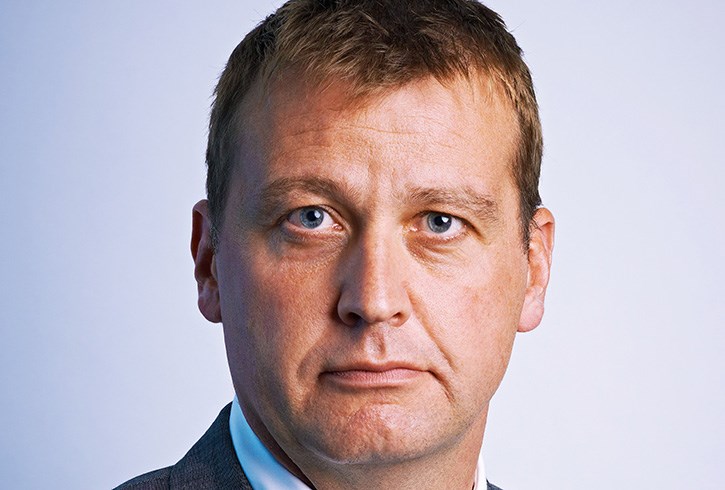
It’s 2016. The Argonaut Absolute Return fund is one of the worst performing funds, not just in its sector but of all Investment Association funds. Investors are turning away in their droves; it has lost 95% assets. It’s fair to say this a low point in the career of Barry Norris.
Fast forward four years to the worst sell-off that markets have seen since 1987 and Argonaut Absolute Return is having a stellar run. Up 22% year to date, it is one of just a handful funds to post a positive return in what has been a torrid few months.
Absolute Return funds are a grossly unloved group. Their general aim is to deliver a positive return regardless of the economic environment, but the sector has fallen firmly out of favour as many have consistently failed to deliver on that promise.
But it’s not just disappointing returns that have cause investors to flee; these funds are notoriously difficult to understand and the varied approaches they take to investing make them almost impossible to compare with each other.
Absolute Return Funds
In this respect, Argonaut Absolute Return is no different; It is a so-called Long/Short strategy which aims to deliver “double alpha”. If you find that precis confusing, you’re not alone.
Simply put, the fund can back stocks it expects to do well and short those it does not. Norris, for example, invested in hospital company NMC Health when its shares were around £28 and recently closed his position when they had reached 5p. That would be disastrous if it weren’t for the fact he had shorted the stock; meaning the more the shares fell, the greater the profit.
Bets against airline Norwegian Air, German payments company Wirecard, and UK shopping centre owner Hammerson have all paid off this year. “We thought shopping malls were a sunset industry before the virus, but this situation has caused that outlook to get even worse,” says Norris. “My shorts are businesses that won’t exist in five or 10 years.”
But it’s not all about finding the failing businesses. Norris expects his “long book” – the investments he’s positive on – to deliver most of his returns for the remainder of the year, rather than this “short book” of poor performers which has thus far soared. Getting the right mix between the two approaches is paramount for this fund.
If you want no volatility, says Norris, put your cash in the bank. If you want something a bit more ambitious, this could be the answer: “I’ve looked in the dictionary. Absolute return doesn’t mean no volatility, it means producing returns that can’t be compared with the rest of the market.”
Going it Alone
Norris started his career at Baillie Gifford, an Edinburgh-based fund house known for its long-term view and home to popular investment trusts such as the £10 billion Scottish Mortgage. He later worked at Neptune with renowned dividend investor Robin Geffen but, enticed by the idea of going it alone, set up his own business in 2005 aged 31. “I enjoy speaking to other fund managers about stocks, but realised I can do that without working at the same company as them,” he says. But it's a path that has led to mixed success for managers.
In the coming months, video conference services are in a win-win situation, Norris predicts. Even after lockdown, it’s likely more people will be working from home and conducting meetings remotely, and Norris has invested in Zoom, which has seen user numbers soar in recent months.
He has also increased his holding in Peloton, which sells pricey exercise bikes for those missing the gym, and likes semiconductor stocks, with manufacturers of the tiny computer chips likely to benefit from the upgrading of 5G networks and greater use of devices in the home as a result of lockdown.
“We’re going to be in this dichotomy for some time where parts of the market are in bull territory, and some are in bear. When you can go long and short of stocks, there are a lot of ways to make money in that environment,” says Norris.
The Art of Compromise
But there are also a lot of ways to lose, he acknowledges, which brings us back to 2016. It was another year when the oil price was in doubt, when the UK made its fateful decision to leave the EU, and Donald Trump was elected as US President.
The fund was short of banks and commodities at the time, areas which were back in vogue with investors, and Norris now realises he hadn’t built into the portfolio the contingency plans he now does so meticulously because he was confident in his investment thesis. It would be a painful 15 months before the tide turned, by which time the fund had haemorrhaged 95% of its assets.
Norris says: “My view turned out to be right in the end, but it was wrong for a painful period beforehand. Now I try to think about how I might be wrong and, if I am, how I can ensure the portfolio still delivers. I used to think making those compromises meant I’d make mediocre returns, but I’m not sure that’s true.”
That introspection has certainly paid off in the latest bout of market turmoil. After holding up well in the market meltdown, Norris has been picking up bargain stocks that have halved in value. Among these are UK housebuilders, an industry which should recover fairly swiftly thanks to low interest rates and people’s desire to get on the property ladder. He adds: “You need to learn from failure to mitigate the risk of it in the future. If you aren’t self-critical, eventually you’re going to fail spectacularly.”
Can Absolute Return Win Investors Back?
But is this latest spate of strong performance enough to silence the critics? Over the past year, some £17 billion has flooded out of Morningstar’s Alternative Fund Category, where most absolute return funds are housed.
Norris says: “It’s frustrating that people often don’t attempt to understand what we do. It’s pretty clear there are a wide range of absolute return funds seeking to do different things, and some are doing it better the others.”
It’s a fair assumption though, that investors would expect assume funds in the same sector to behave in similar ways - and that after years of lacklustre returns, many have decided to look elsewhere. Still, Norris insists his fund is not as complicated as its “long/short double alpha” remit suggests. There are no complicated derivatives in the portfolio, only single stocks positions – it’s just that some of them are short. He also writes regular blogs and explainers on the website for any investors looking for more information.
He adds: “The only question investors should ask if you’re considering this fund is: do you think it’s important to be diversified? Hopefully, after Q1, they do.”




























